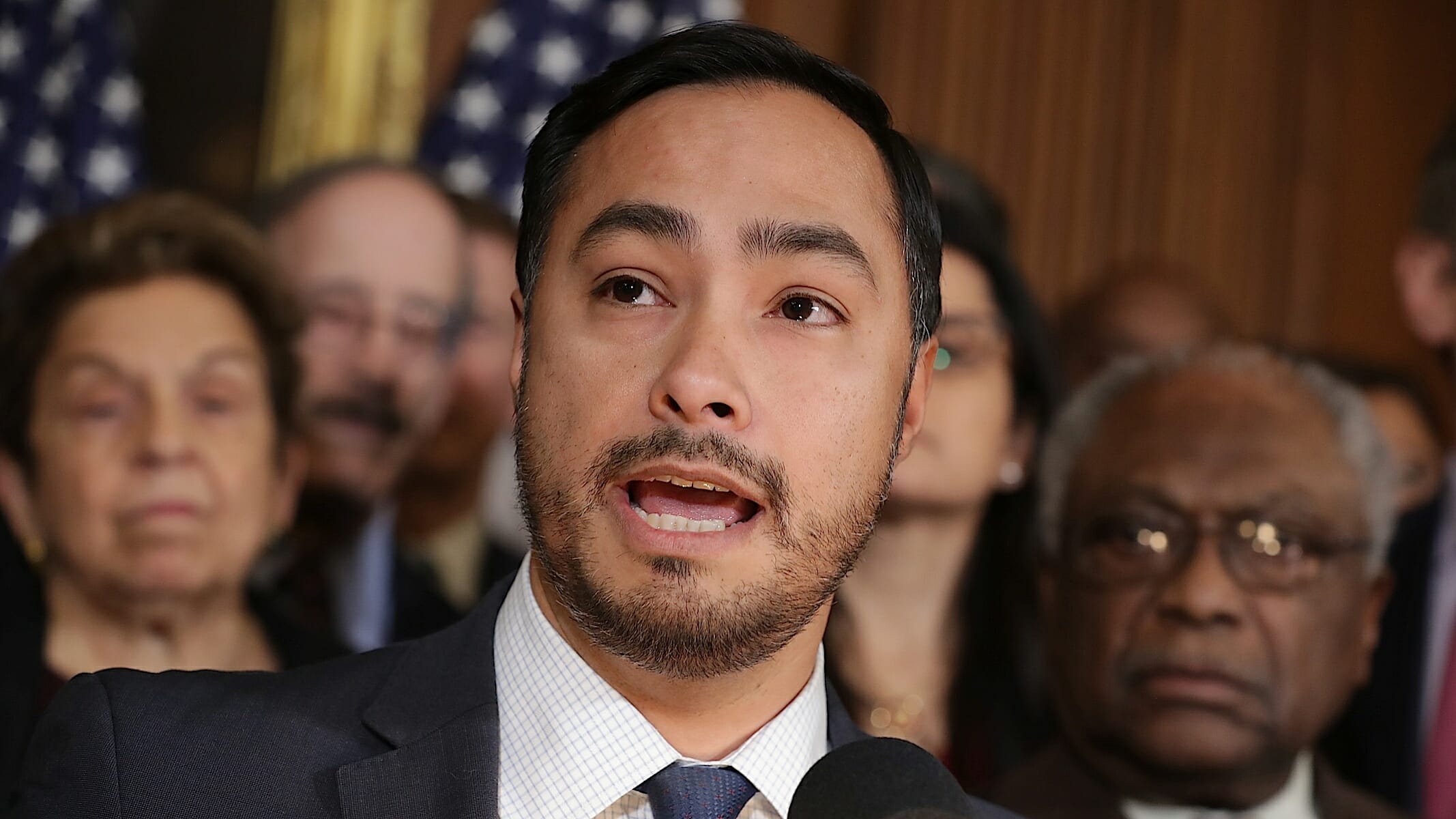This Is America, Where You Have to Stand by Your Political Donations
Photo by Chip Somodevilla/Getty
Joaquin Castro is a House member representing San Antonio and a few of its suburbs, and the twin brother of Julián Castro, who is running for president (incidentally, Joaquin is also his brother’s campaign chief). Earlier this week, he tweeted out a list of his fellow San Antonians who had donated the maximum to Donald Trump’s campaign. “Their contributions are fueling a campaign of hate that labels Hispanic immigrants as ‘invaders,” Castro wrote, and the list included 44 names:
Sad to see so many San Antonians as 2019 maximum donors to Donald Trump — the owner of ?@BillMillerBarBQ?, owner of the ?@HistoricPearl, realtor Phyllis Browning, etc?.
Their contributions are fueling a campaign of hate that labels Hispanic immigrants as ‘invaders.’ pic.twitter.com/YT85IBF19u
— Joaquin Castro (@Castro4Congress) August 6, 2019
The tweet became national news yesterday, in part because House Minority Whip Steve Scalise, the Republican who was seriously hurt when he was shot at a congressional baseball game in 2017, tweeted out a condemnation and linked it to a Daily Caller article:
People should not be personally targeted for their political views. Period. This isn’t a game. It’s dangerous, and lives are at stake. I know this firsthand. https://t.co/PbxUMIOhae
— Steve Scalise (@SteveScalise) August 6, 2019
House Minority Leader Kevin McCarthy echoed these sentiments, per Newsweek:
House Minority Leader Kevin McCarthy, a California Republican, also accused Castro of “targeting and harassing Americans for their political beliefs,” saying that it is “shameful and dangerous.”
Tucker Carlson, not to be outdone, said that these kinds of actions are leading us to civil war.
Of course, they’re wrong—Castro was simply spreading information that is already public. It’s his belief, and the belief of many others, that this level of support for Donald Trump is tantamount to support for the kind of anti-immigrant rhetoric the president routinely espouses, and which arguably helps inspire acts of nationalistic violence, including the El Paso mass shooting that no doubt inspired Castro’s tweet in the first place. To him, their donations are putting lives in danger by furthering Trump’s agenda—an agenda at least two Democratic presidential candidates have classified as “white supremacist”—and enabling his rhetoric to spread far and wide, including to places where it can inspire vigilante acts of terror. Naming his supporters? That’s called accountability.
-

-

-

-

-

-

-

-

-

-

-

-

-

-

-

-

-

-

-

-

-

-

-

-

-

-

-

-

-

-

-

-

-

-

-

-

-

-

-

-








































